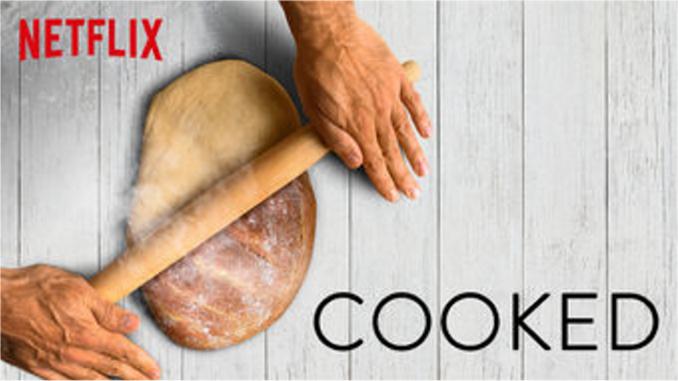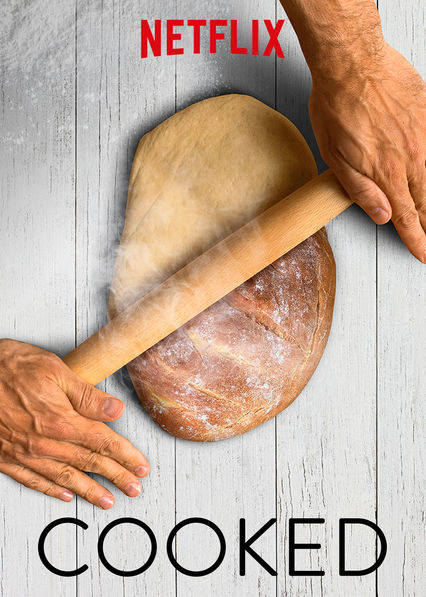Half baked cooking show

On a friend’s recommendation I recently started watching the series “Cooked” that debuted on Netflix in February.
It’s a documentary narrated by Michael Pollan based on his 2013 book also titled “Cooked”.
Pollan made a name for himself as a food writer with previous books like “The Omnivore’s Dilemma,” and “In Defense of Food.” These books grapple with questions of what modern humans should eat, and how it is produced. “Cooked” looks at the related subject of how our food is prepared.
 Each episode is titled for one of the four elements, fire, water, air and earth, and is thematically based around a basic method of cooking food, boardly, grilling, boiling, baking, and fermentation.
Each episode is titled for one of the four elements, fire, water, air and earth, and is thematically based around a basic method of cooking food, boardly, grilling, boiling, baking, and fermentation.
Pollan follows the same recipe in this show that he used successfully for his books about food. Each episode is one part cooking history, one part food science, one part shocking food industry exposé, and one part idealized depiction of home cooking.
The series contains many interesting ideas, but in trying to cover so many topics, it gives none of them the attention they deserves.
The ethics of industrial animal agriculture, the economic issues that incentivize the cheapest sources of calories over nutritious food, climate change threats to food production – any of these topics is worth covering in its own documentary, but instead they are only briefly mentioned.
Instead the series casts an uncritical light on more traditional means of cooking and processing food. Pollan proposes that cooking and eating at home will solve many of our modern problems from obesity to social justice. It is a seductive idea, especially when presented in the soft light of an exotic location like India, or Pollan’s own carefully curated upper middle class home.
Even as it tells us all we need is a home cooked meal it complicates or even contradicts that idea. In the “Water” episode we see the dabbawala system, a system to deliver meals from home to office workers in New Delhi, held up as a model to emulate in the Americas. But the same episode shows how the Western diet is being exported at a rapid pace. The show interviews an Indian family that has an uncanny resemblance to the stereotype of the fat fast-food-eating American family complete with kids who would rather eat out than eat home cooking.